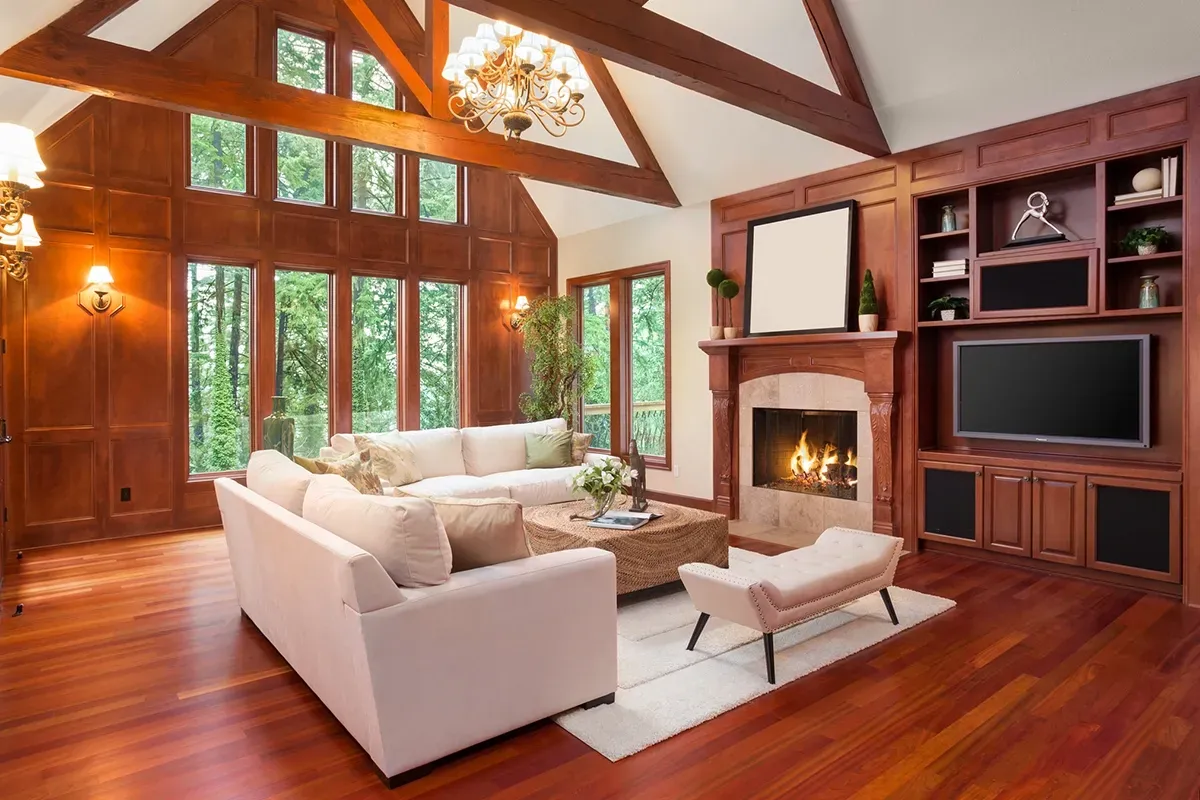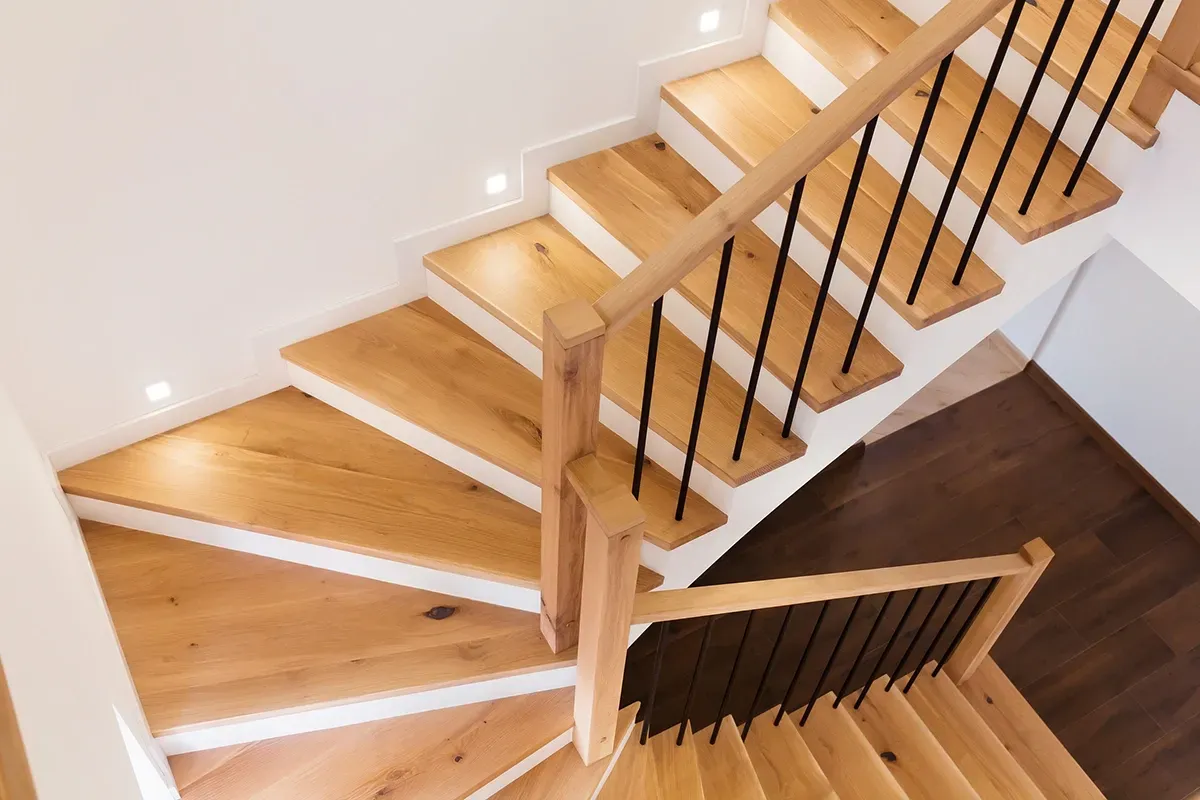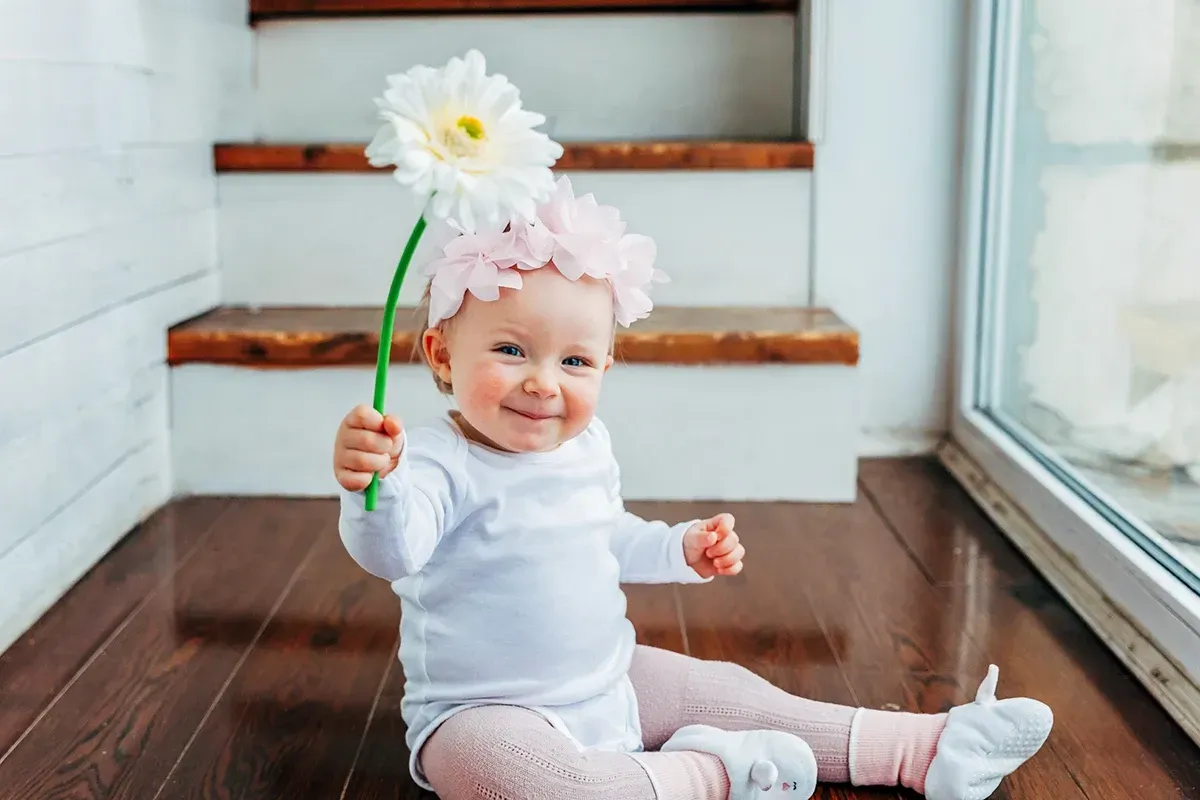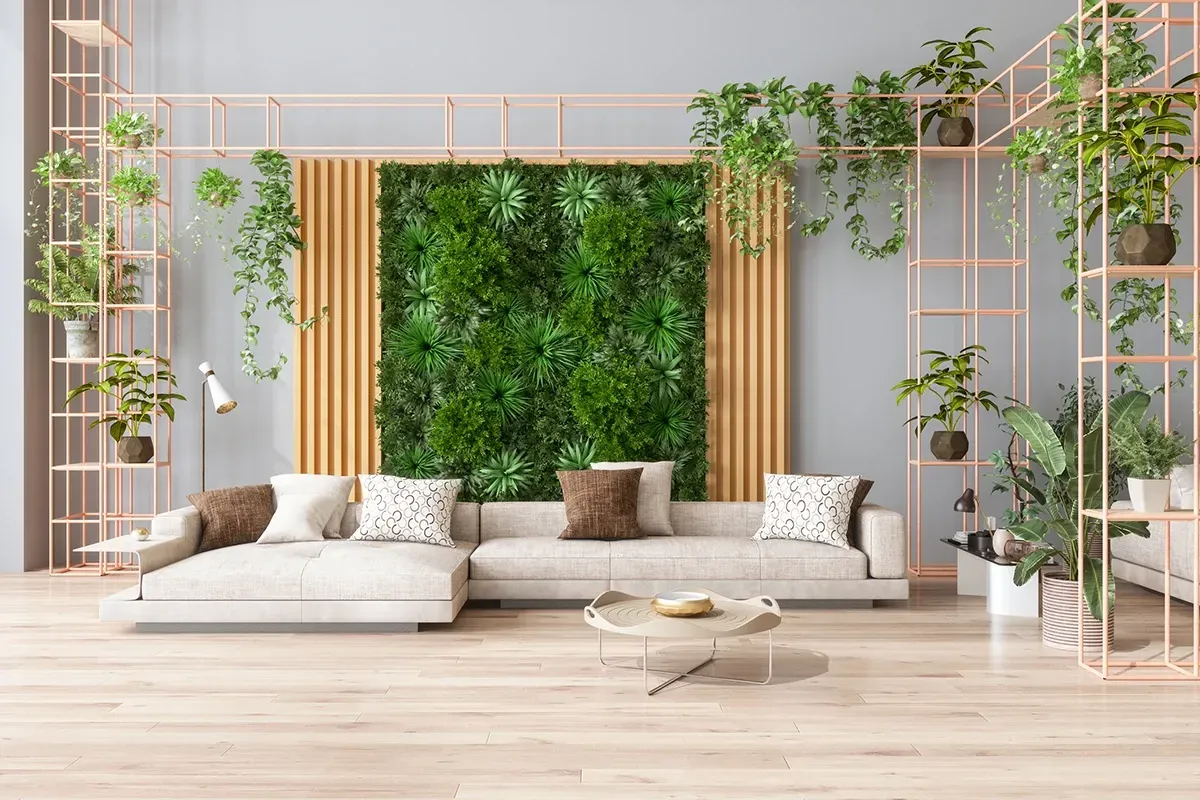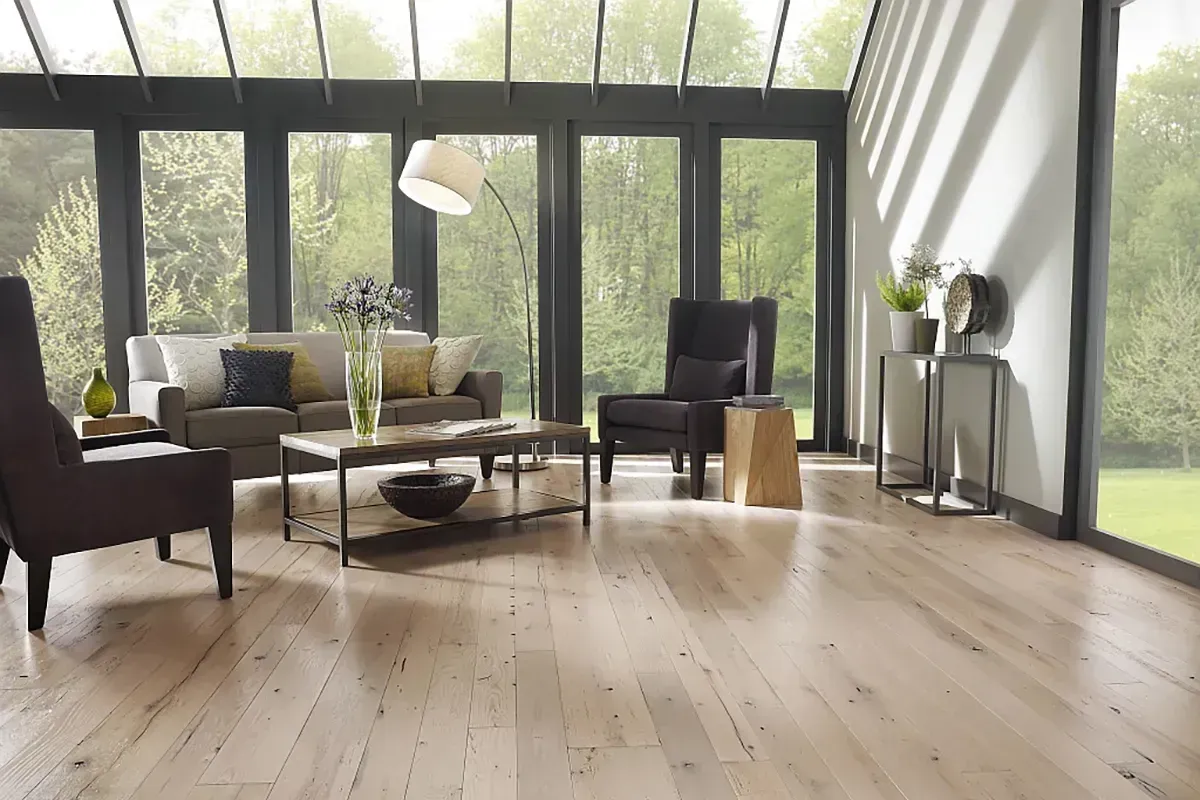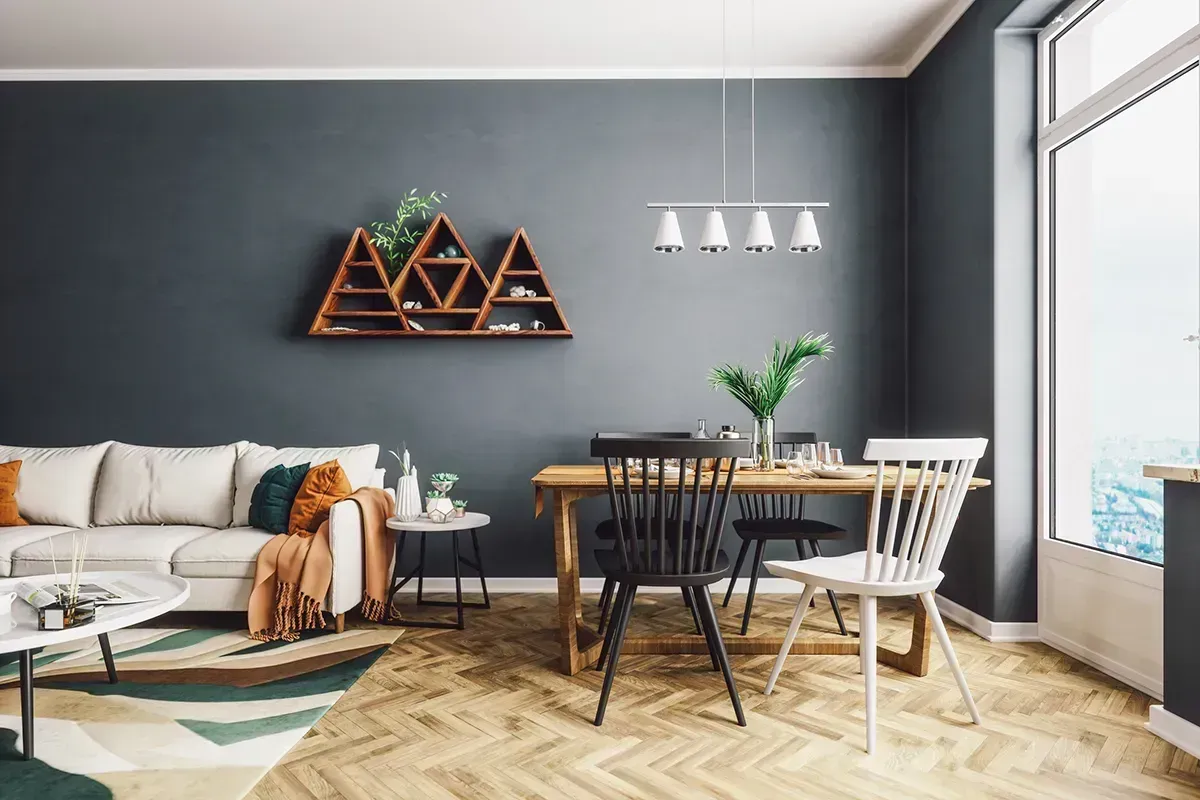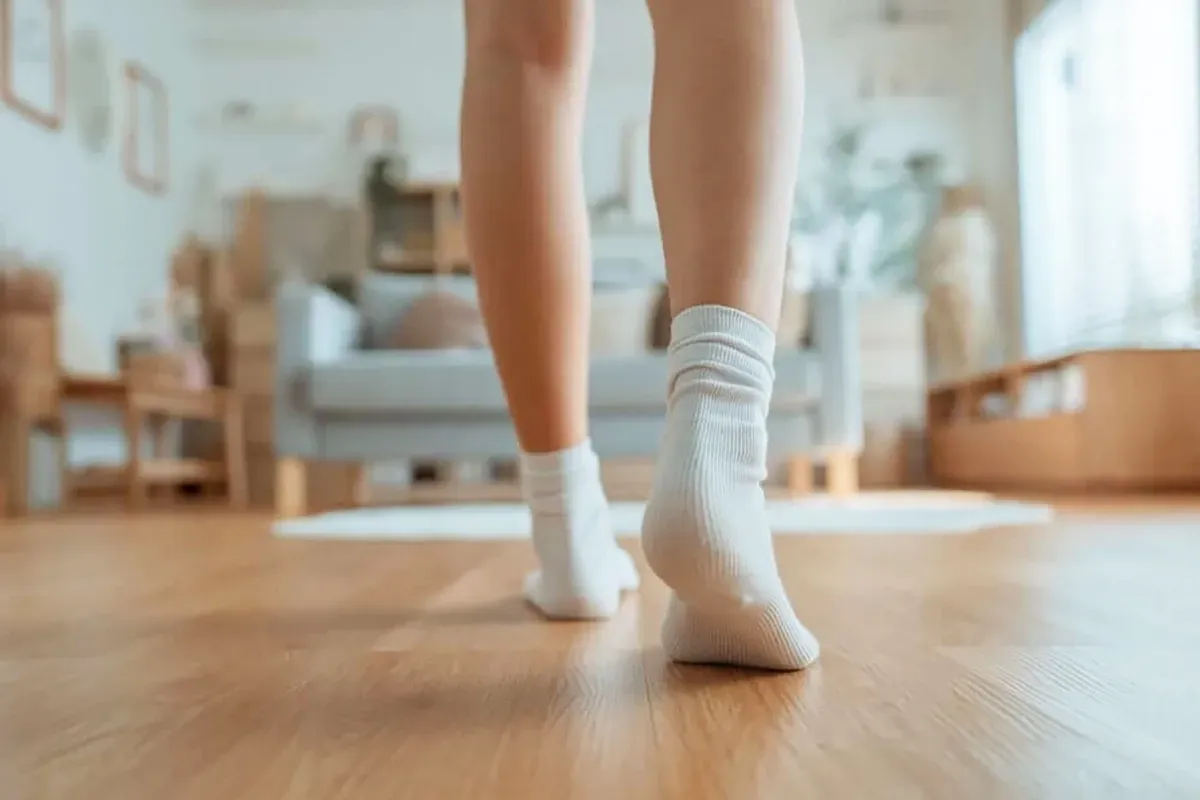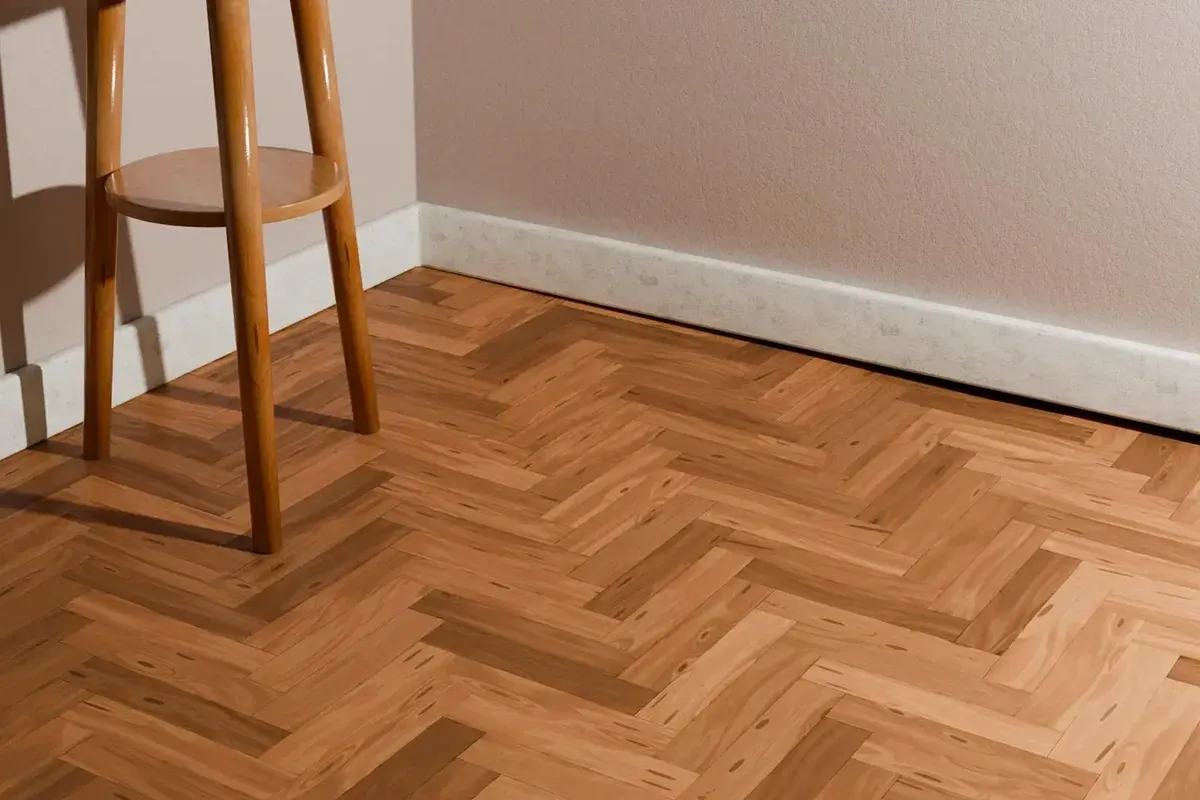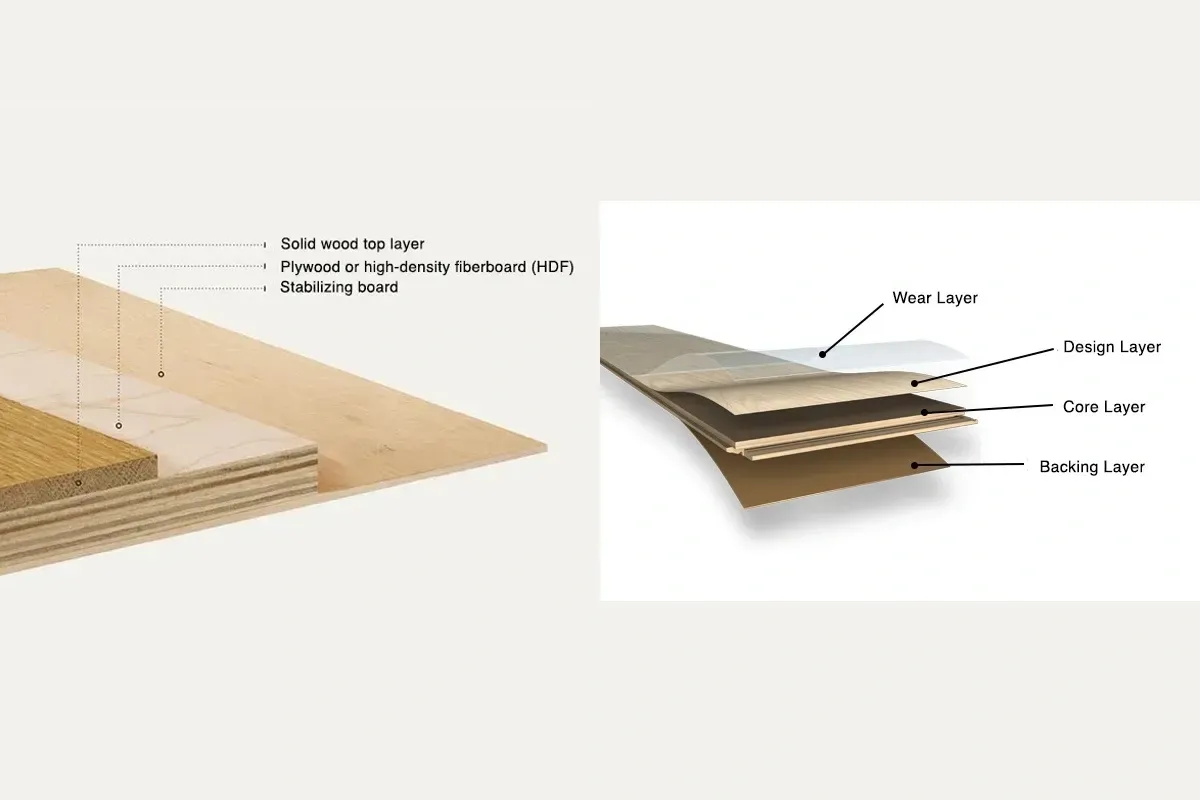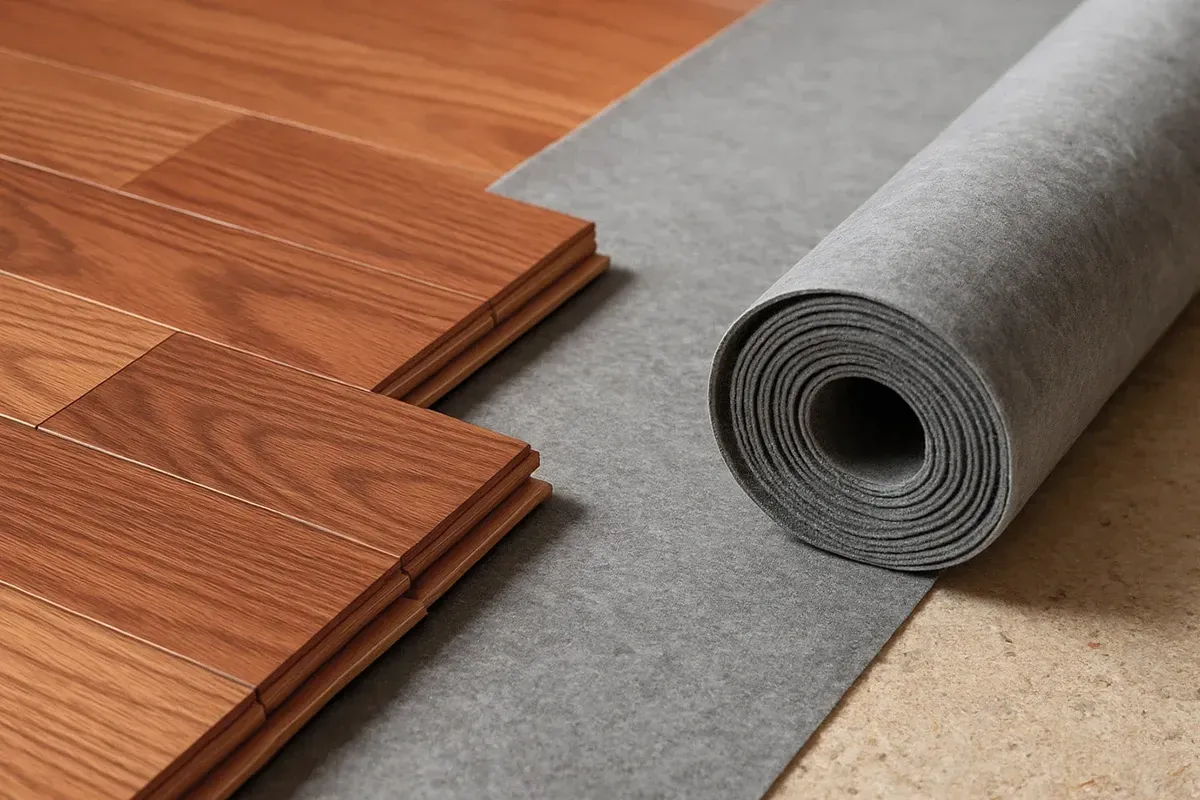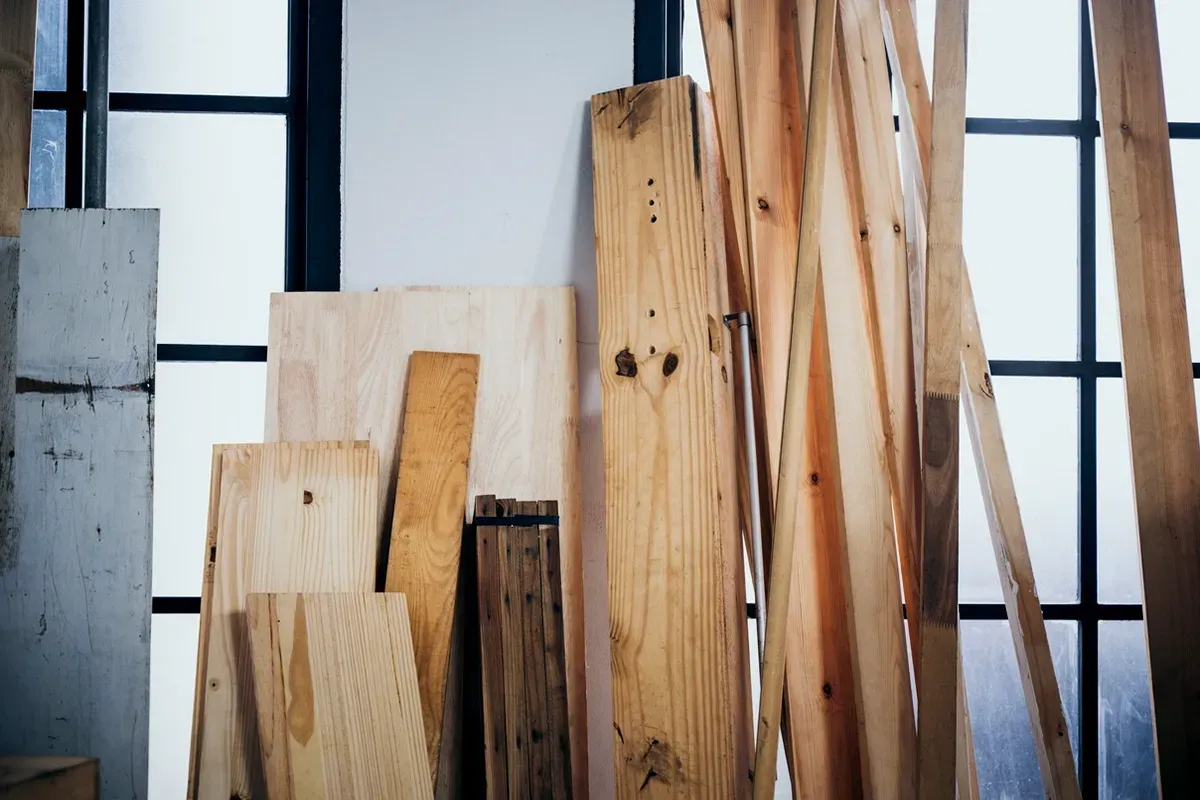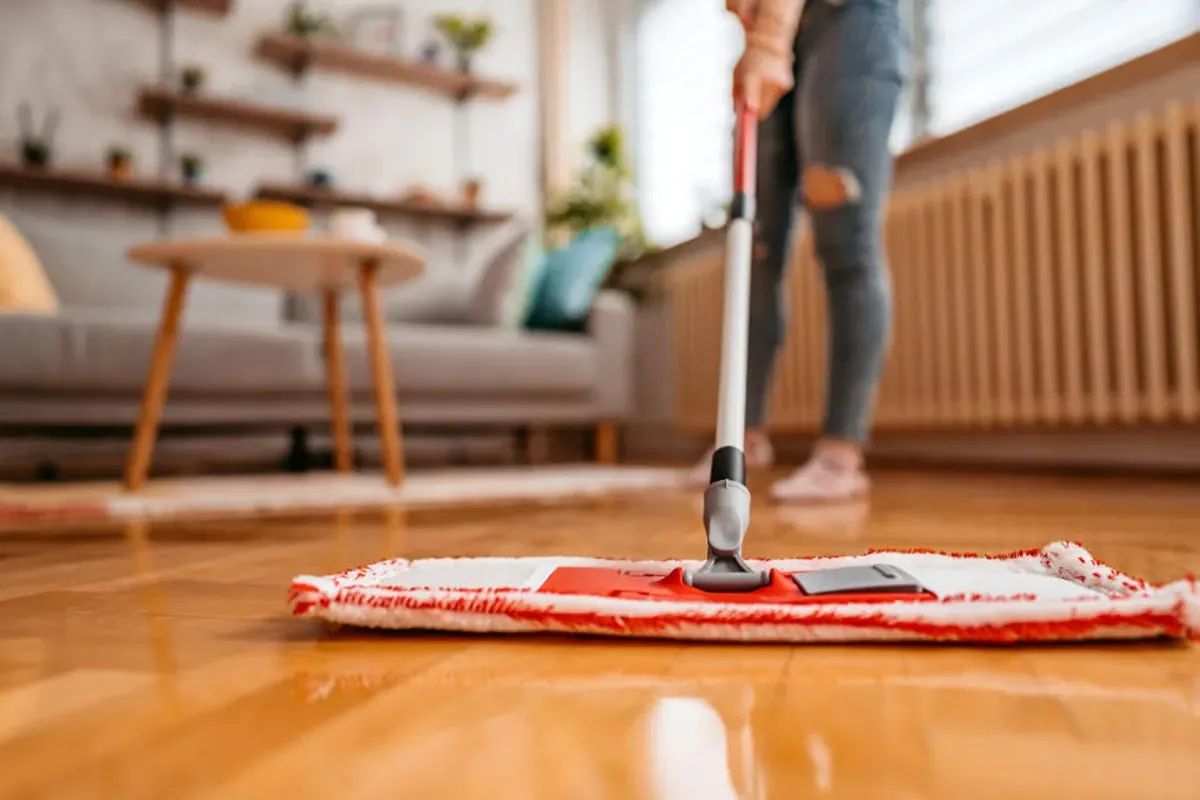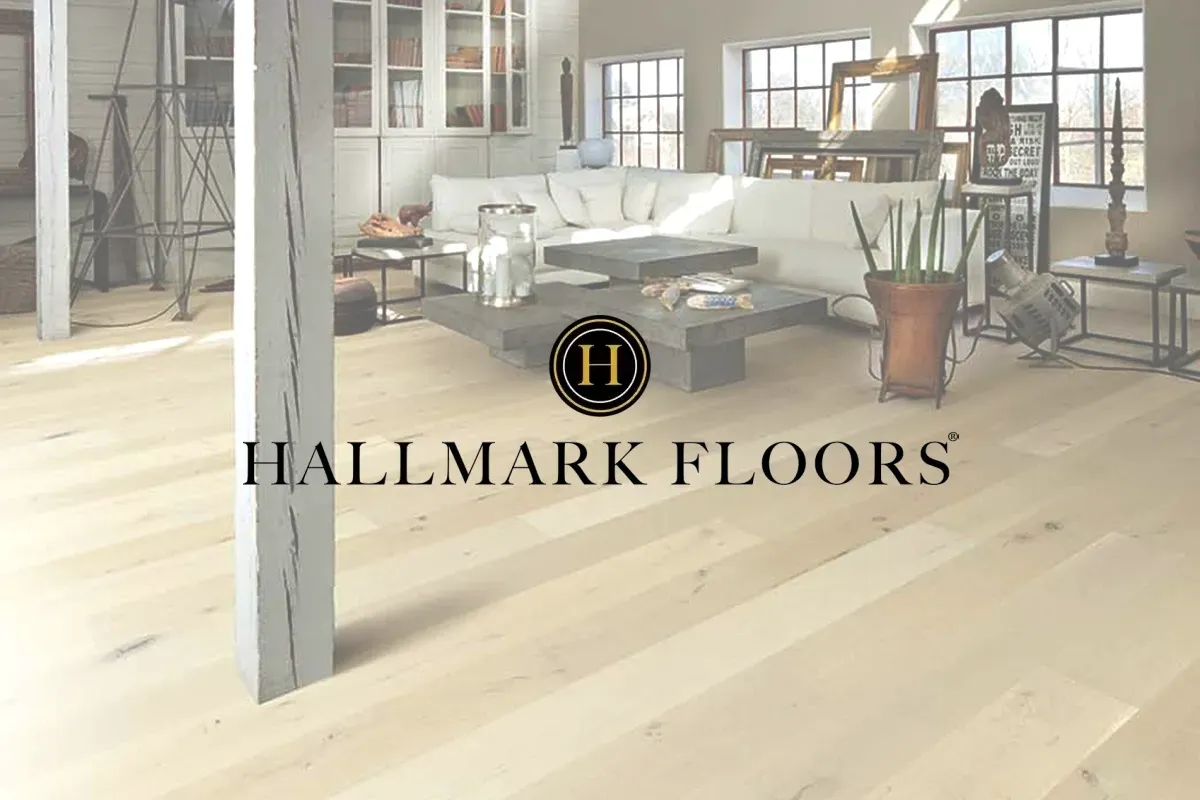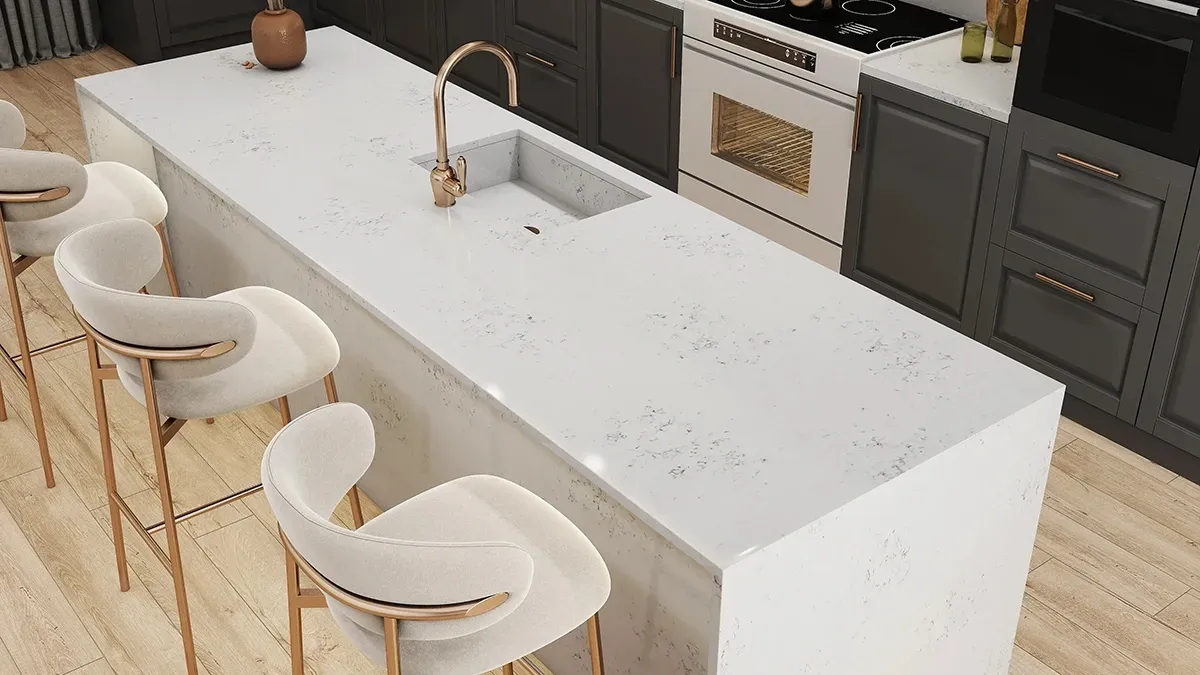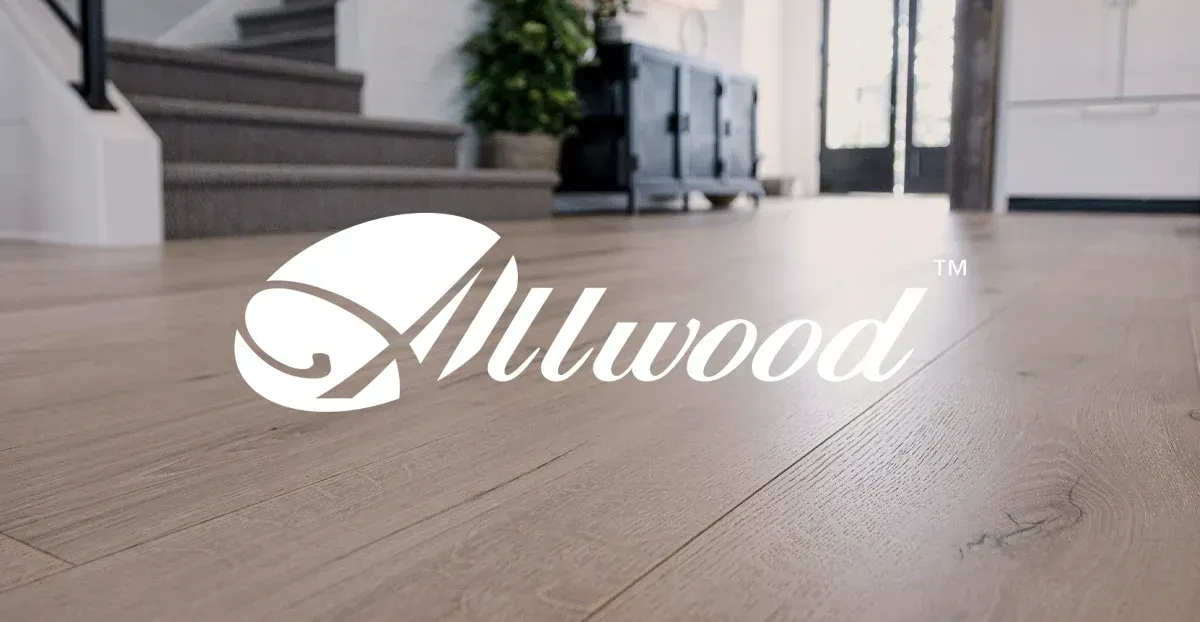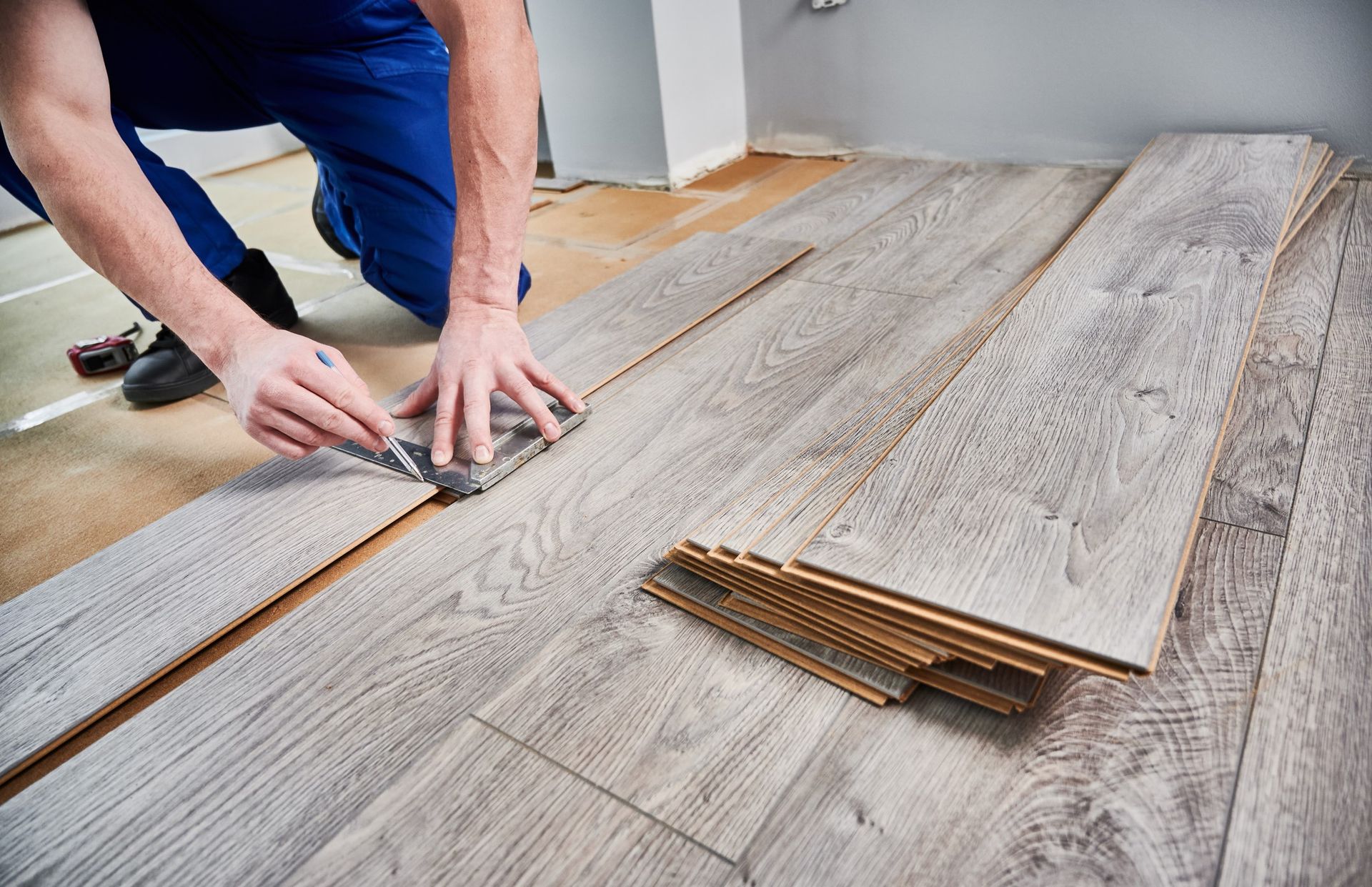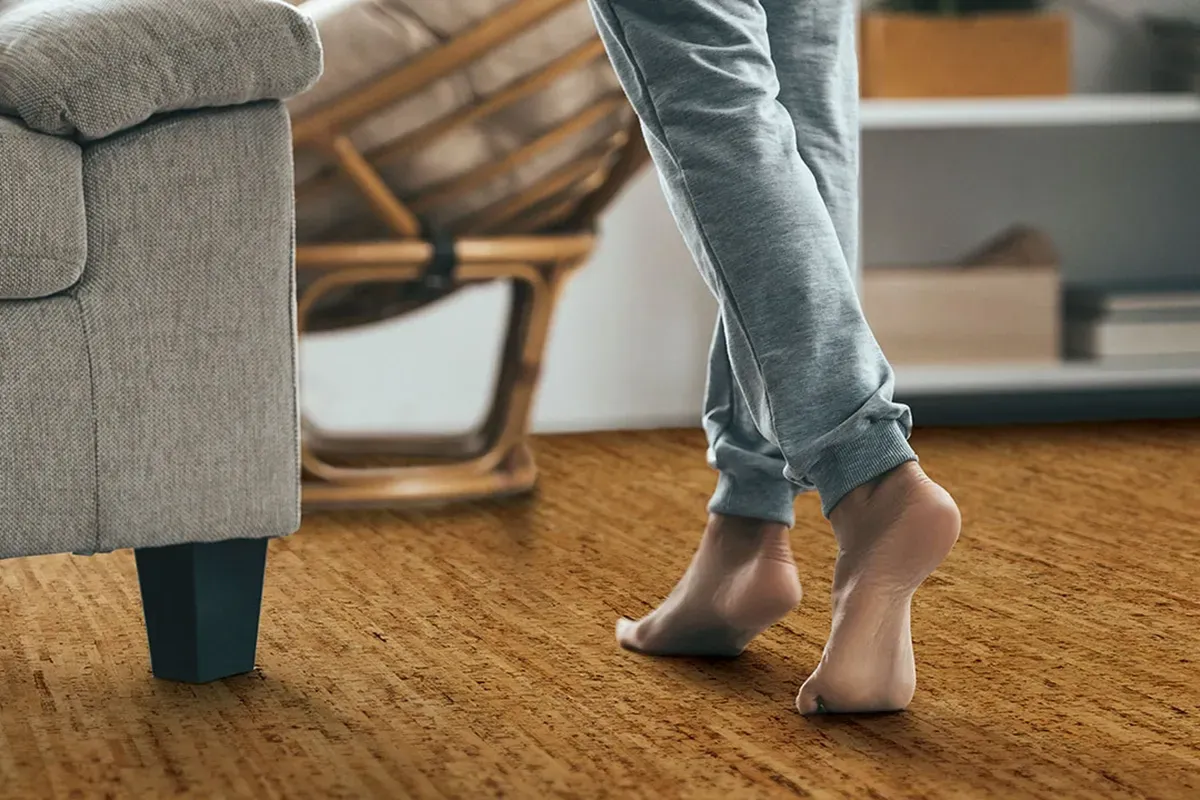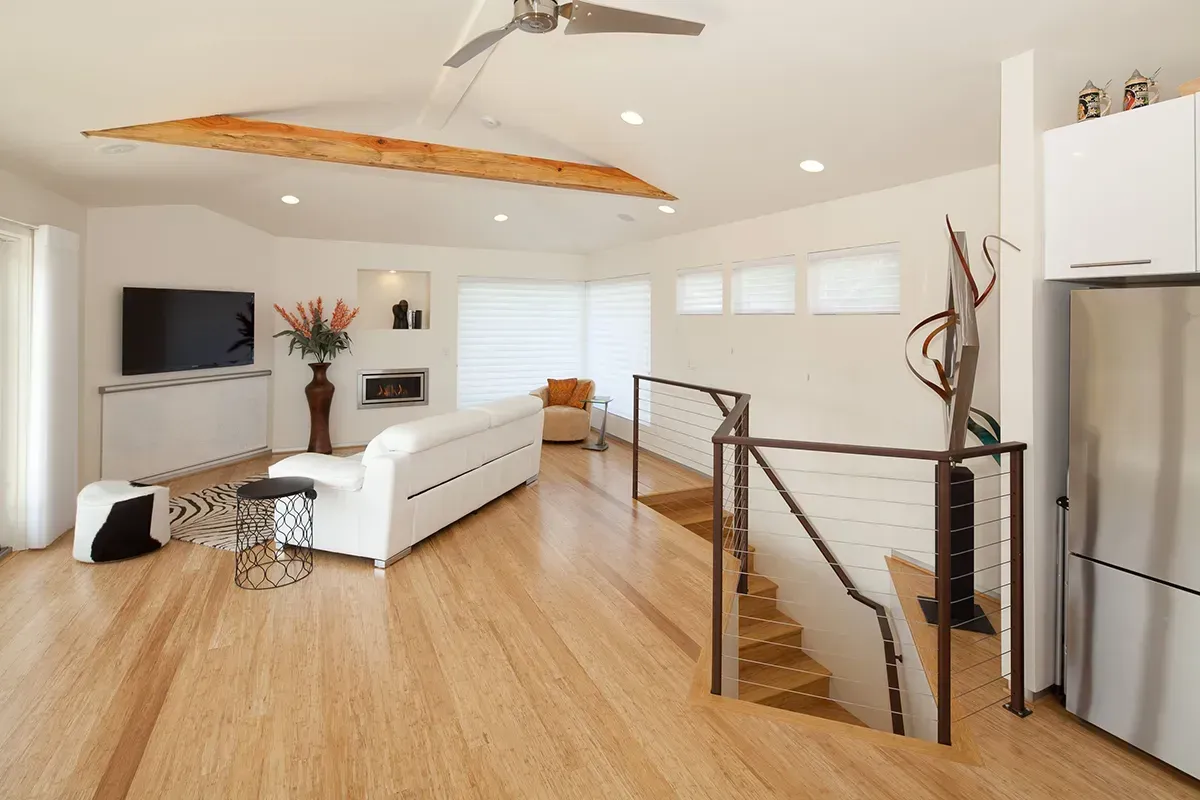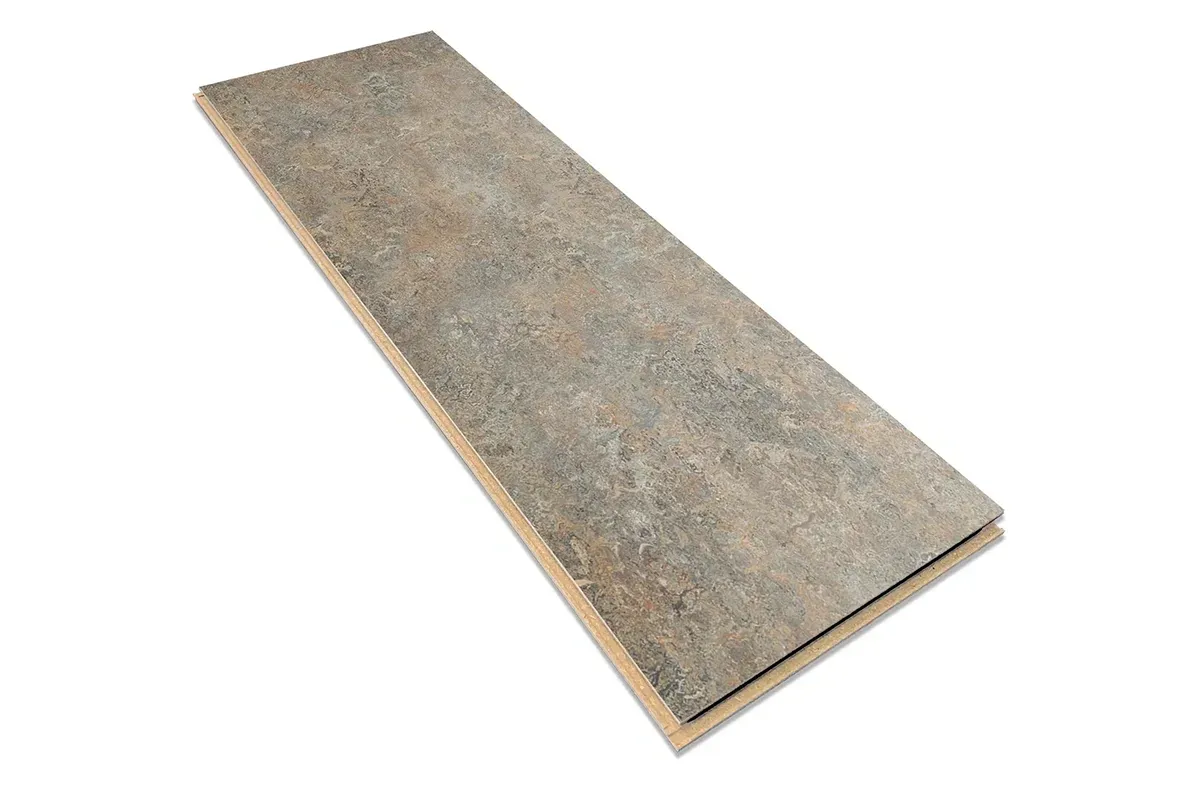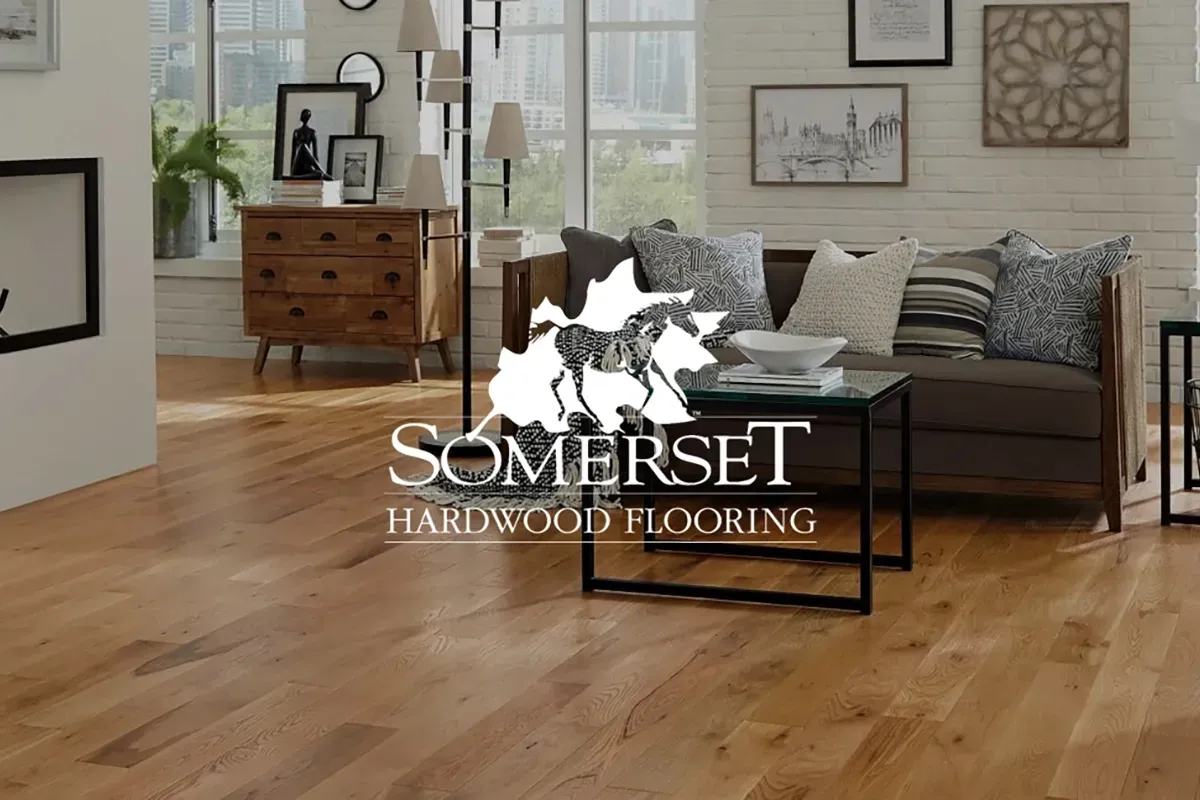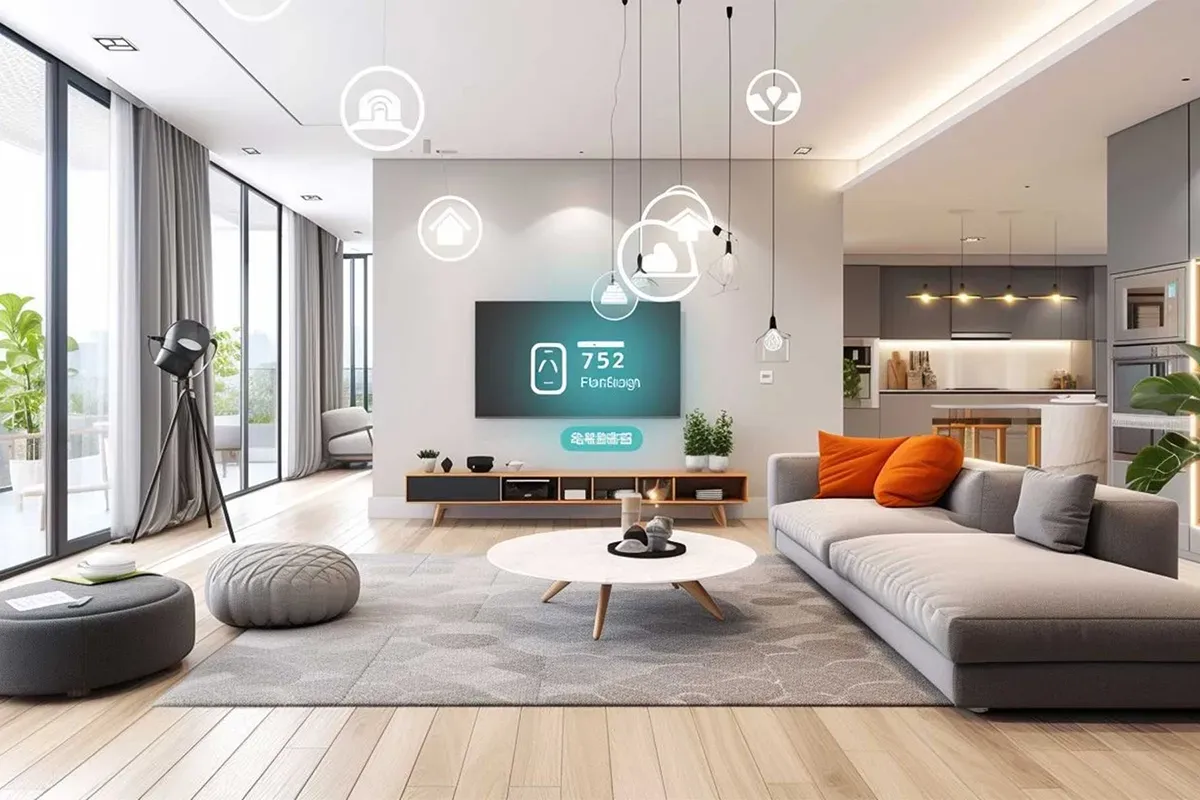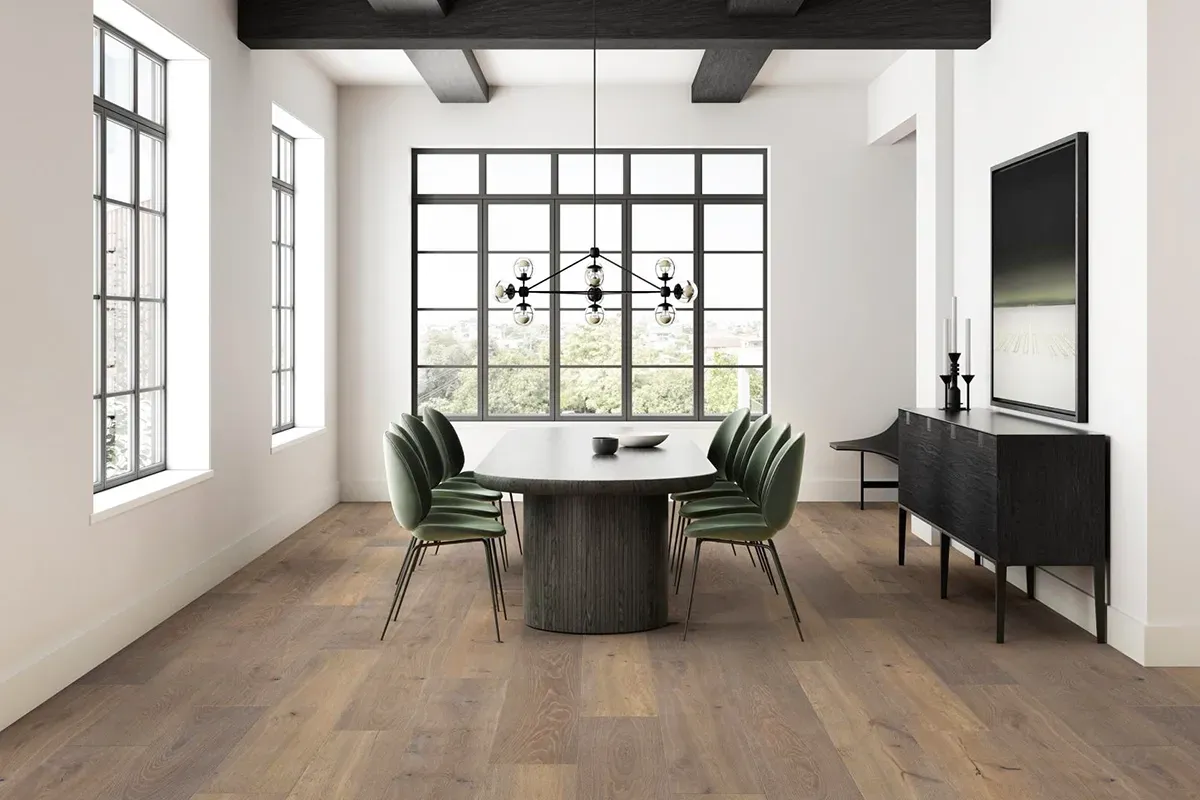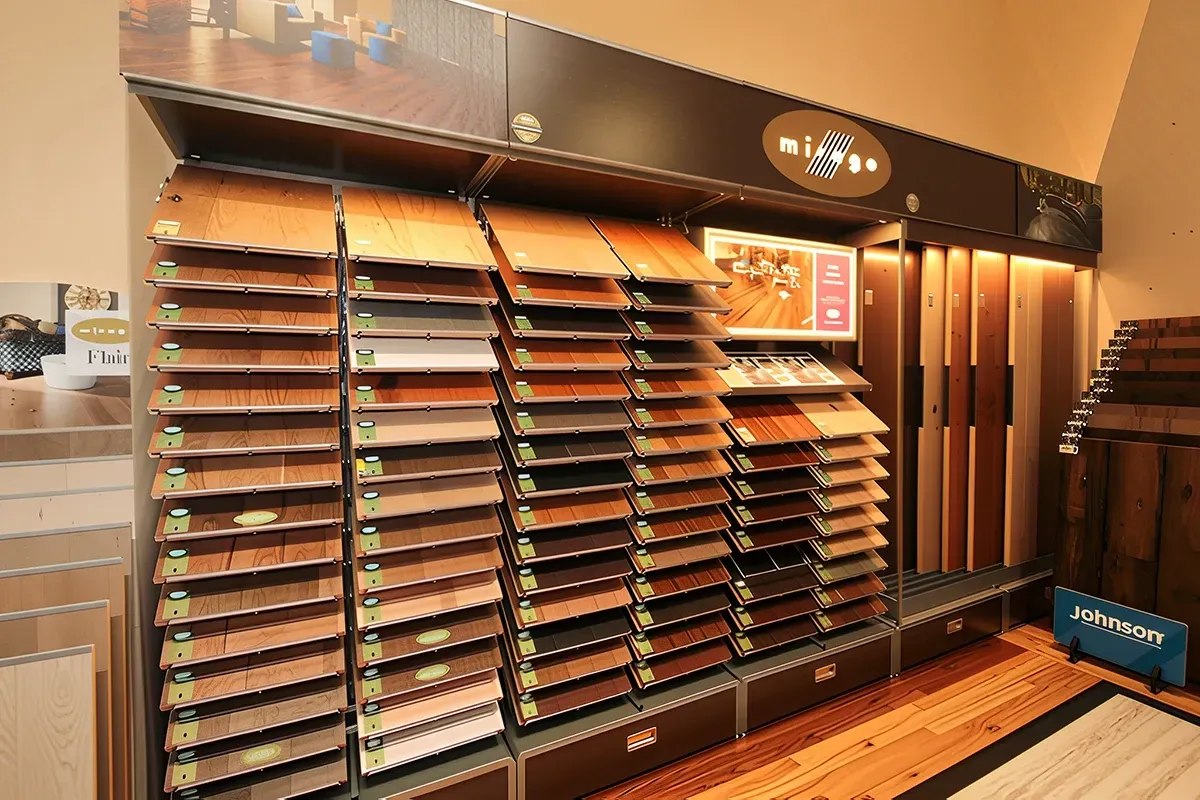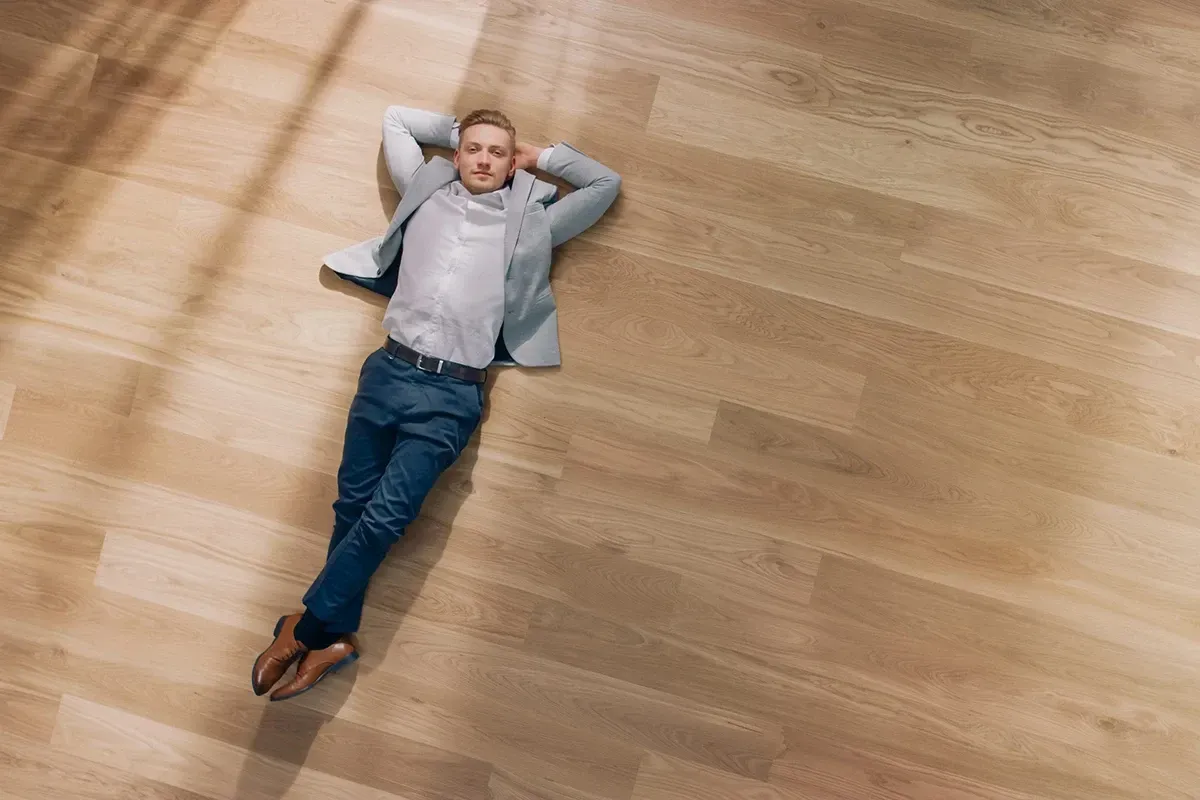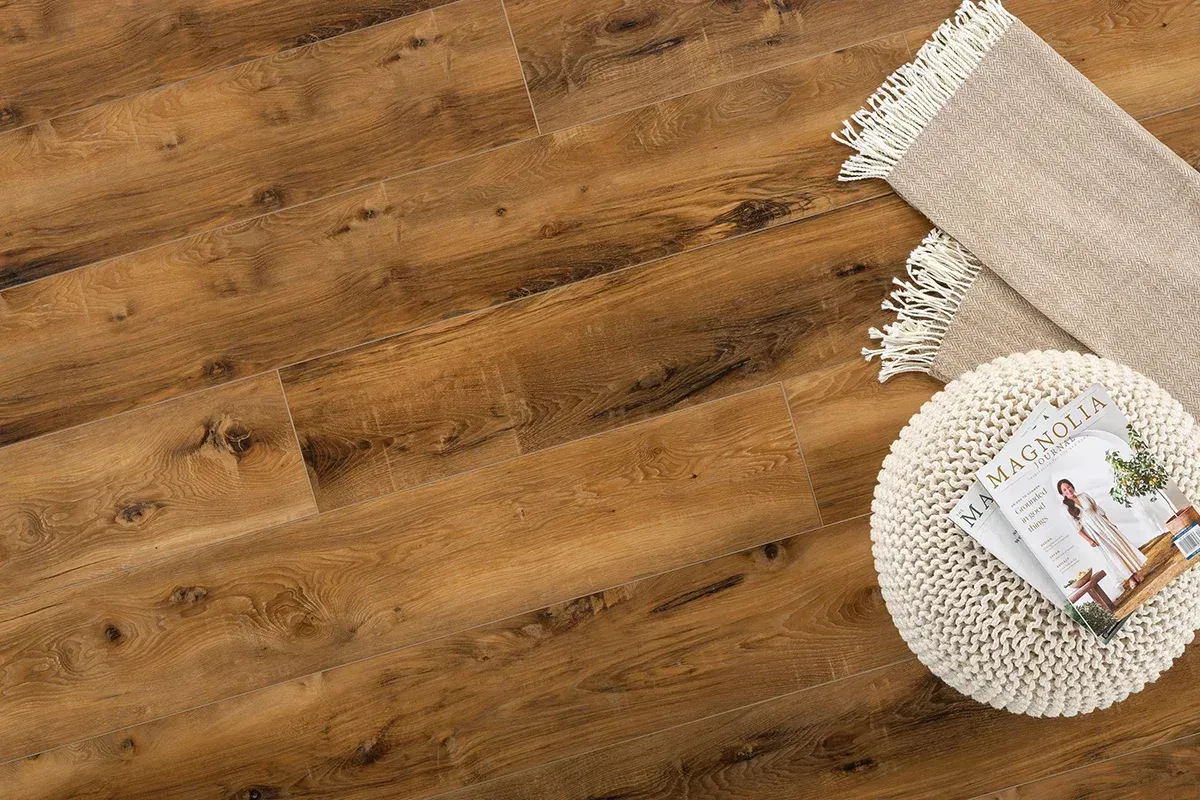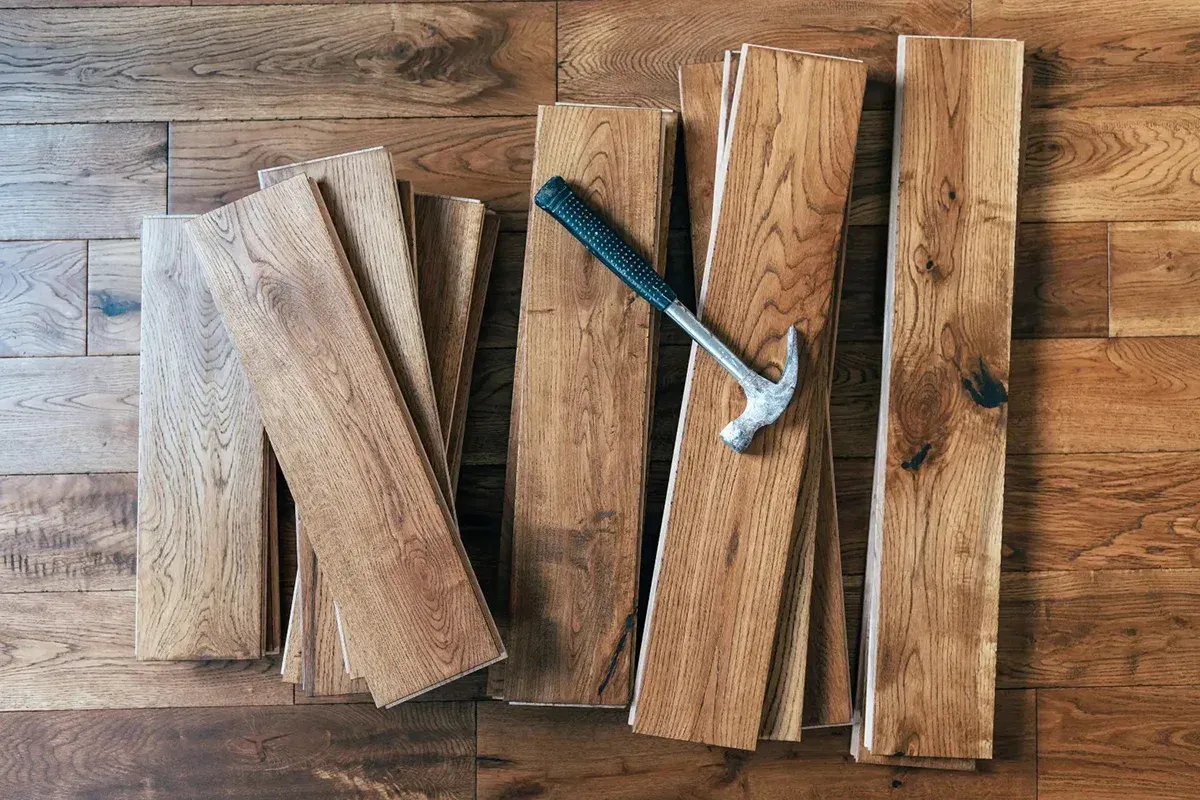Hickory Flooring: Pros, Cons & Expert Tips
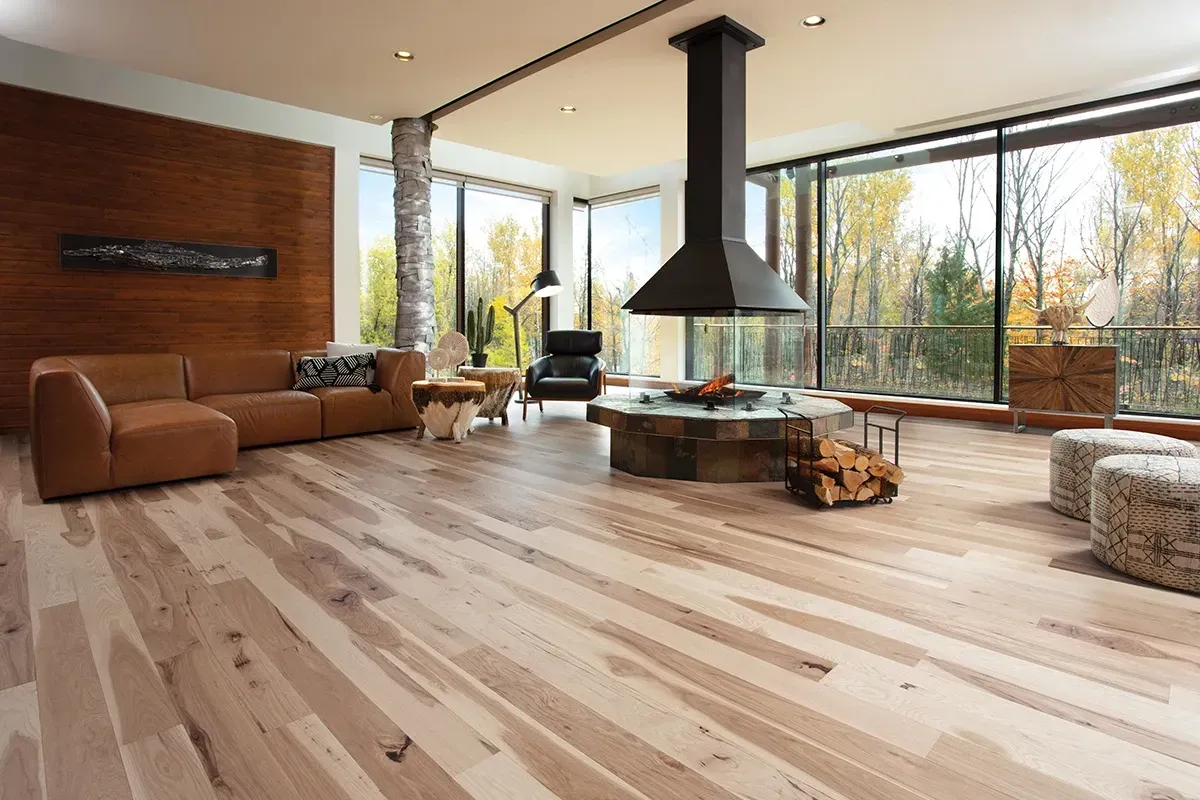
Hickory flooring is one of the most distinctive and durable options available for today’s homeowners. With its bold grain patterns, natural color variation, and unmatched toughness, hickory wood floors are a favorite among those who want a floor that stands up to everyday life while making a statement.
At Rejuvenation Floor & Design, we regularly work with our local customers in Portland, Oregon, who love the look of hickory but want to understand how it performs compared to other hardwoods before making their decision.
This guide will walk you through everything you need to know about hickory flooring — its strengths, its challenges, and our expert tips for choosing the right type for your space. We’ll also highlight two excellent brand options we carry: Mirage’s engineered hickory and Crestwood’s solid hickory, so you can see how hickory can fit your project no matter your subfloor or style preferences.
TL;DR: Hickory is one of the toughest hardwoods, offering bold grain patterns, rich color variation, and long-lasting durability — ideal for busy homes with kids or pets. Its rustic look adds warmth but can feel too bold for minimalist spaces, and it’s more expensive and challenging to install.
Choose solid hickory (like Crestwood) for timeless appeal and refinishing flexibility, or engineered hickory (like Mirage) for moisture-prone areas. Maintain balanced humidity, use felt pads and rugs, and recoat as needed. With proper care, hickory floors can stay beautiful for decades.
The Pros of Hickory Hardwood Floors
1. Incredible Durability
One of hickory’s biggest selling points is its hardness. With a Janka hardness rating of around 1,820, it’s one of the hardest domestic hardwoods you can buy. This means it resists dents, scratches, and wears better than oak, maple, and even many exotic woods. If your home has kids running through the halls, pets with sharp nails, or a lot of heavy furniture, hickory is up to the challenge.
2. Natural Character & Variation
Hickory has a distinctive grain pattern and a wide color range — from creamy white sapwood to deep reddish-brown heartwood — sometimes even within the same board. Hickory wood floors create a natural contrast that feels dynamic and full of life. Many homeowners love the warm, rustic character that hickory brings to a room, and it pairs beautifully with farmhouse, lodge, or transitional designs.
3. Long-Lasting Performance
Because of its density, hickory is less prone to deep gouges and major damage, which means it maintains its beauty longer. When the finish eventually wears, hickory can be sanded and refinished multiple times, giving you the flexibility to refresh its appearance or change its stain color over the decades.
4. Excellent Value Over Time
Although hickory may cost slightly more upfront than other domestic species, its toughness makes it a cost-effective choice long-term. You’ll spend less money on touch-ups, repairs, and premature replacement, making hickory a smart investment for your home.
The Cons of Hickory Hardwood Floors
1. Bold Look Isn’t for Everyone
Hickory’s grain pattern and color variation are part of what makes it unique, but some homeowners prefer a calmer, more uniform look. In small rooms, or in homes with very modern or minimalist design, hickory’s busyness can sometimes compete with the décor.
2. Higher Material & Installation Cost
Because hickory is dense and slightly harder to work with, it can cost more to purchase and install than oak or birch. This is something to factor into your flooring budget — though many homeowners find the longevity justifies the cost.
3. Requires Professional Installation
Hickory’s hardness means it takes skill and the right tools to install properly. Attempting a DIY installation could lead to split boards or gaps. Professional installers know how to properly acclimate hickory flooring, make precision cuts, and leave the right expansion space to allow for seasonal movement.
4. Seasonal Expansion & Contraction
Like all wood floors, hickory expands and contracts with changes in humidity. Because of its density, these changes can sometimes be more noticeable. Maintaining indoor humidity levels between 35–55% and letting the floor acclimate before installation helps minimize this issue.
Solid vs. Engineered Hickory: Two Excellent Options
When choosing hickory, one of the first decisions is whether to go with solid hardwood or engineered hardwood. Both options use real hickory but have different constructions, and we offer excellent examples of each through our trusted brands.
Crestwood Solid Hickory
Crestwood is well-known for its traditional solid hardwood options, and their hickory products are no exception. A solid hickory floor from Crestwood is made from a single piece of wood, providing a classic look and feel underfoot. Because it is solid, it can be sanded and refinished multiple times, making it a great choice for homeowners who want their floors to last for generations.
Crestwood offers hickory in a variety of finishes and grades. You can choose a more rustic grade with knots and variation if you love a farmhouse or cabin look, or a cleaner grade for a slightly more refined feel. Crestwood’s solid hickory works best on grade or above-grade spaces (such as the main floor or upper levels) where humidity is relatively consistent.
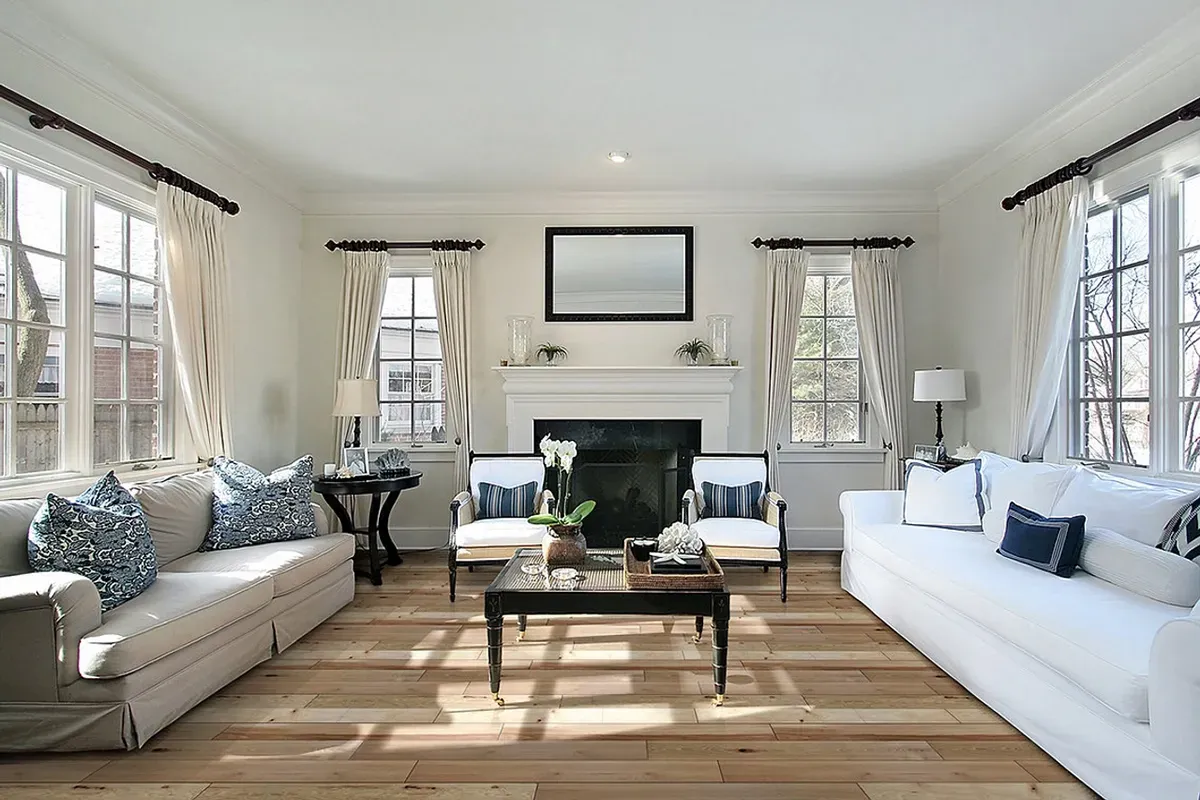
Mirage Engineered Hickory
Mirage is a premium brand known for its exceptional engineered hardwood construction. Mirage’s engineered hickory (first image) combines a thick, real hickory wear layer with a stable core that resists movement due to moisture or temperature changes. This makes it a great choice for installations where solid wood might not be recommended, such as basements, over radiant heat systems, or on top of concrete subfloors.
Mirage is also known for its precision milling, which ensures that boards fit together tightly and create a smooth, seamless look. Their engineered hickory floors are available in a variety of widths and finishes, giving homeowners design flexibility while still enjoying hickory’s natural character.
Design Tips for Hickory Floors
Because hickory flooring has such a bold and varied appearance, a few thoughtful design choices can help you achieve a balanced, cohesive space:
- Choose the Right Grade: Rustic or character-grade hickory highlights knots and variation, giving a casual, cozy look. Select-grade hickory has fewer knots and a more even appearance, perfect for a slightly more contemporary style.
- Consider Your Finish Carefully: Lighter, natural finishes highlight hickory’s natural contrast and grain, while darker stains can minimize the variation and create a more uniform, sophisticated look.
- Pair with Neutral Elements: Hickory can be visually striking, so pairing it with neutral wall colors, cabinetry, and furnishings helps keep the space from feeling too busy.
- Mix Textures Thoughtfully: Complement hickory’s rustic charm with soft textiles like area rugs, throws, and upholstery to create a welcoming balance.
Expert Maintenance Tips
A beautiful hickory floor can last for decades if it’s cared for properly. Here are a few maintenance tips we recommend to our customers:
- Sweep or Vacuum Frequently: Dirt and grit can act like sandpaper and wear down the finish faster.
- Use Felt Pads & Rugs: Place felt pads on chair and furniture legs and use rugs in high-traffic areas to prevent surface scratches.
- Maintain Humidity: Use a humidifier in dry months and a dehumidifier in humid months to keep your indoor air within the recommended range and prevent
gapping or cupping.
- Recoat When Needed: If the floor starts to look dull, a simple recoat (not a full refinish) can restore its sheen and add years of protection.
Is Hickory the Right Choice for Your Home?
Hickory is an excellent choice for homeowners who want a floor that can handle heavy use while offering a unique and natural aesthetic. With brands like Crestwood for solid hickory and Mirage for engineered hickory, it’s easy to find a product that fits your space, your subfloor, and your personal style.
We encourage local homeowners curious about hickory flooring, to visit our
flooring store in Portland, Oregon. Our team can walk you through your options, show you samples of Crestwood and Mirage products, and recommend the perfect grade, width, and finish for your project. We can also assess your home to determine whether solid or engineered hickory is the best fit and guide you through installation planning for a result that will look beautiful for years to come.

